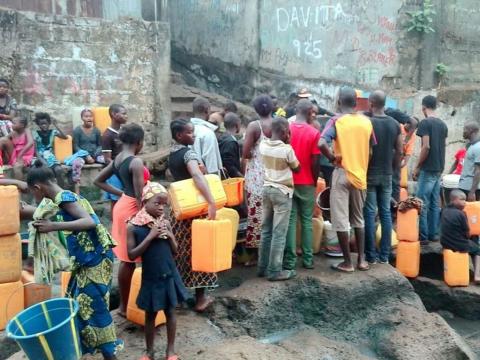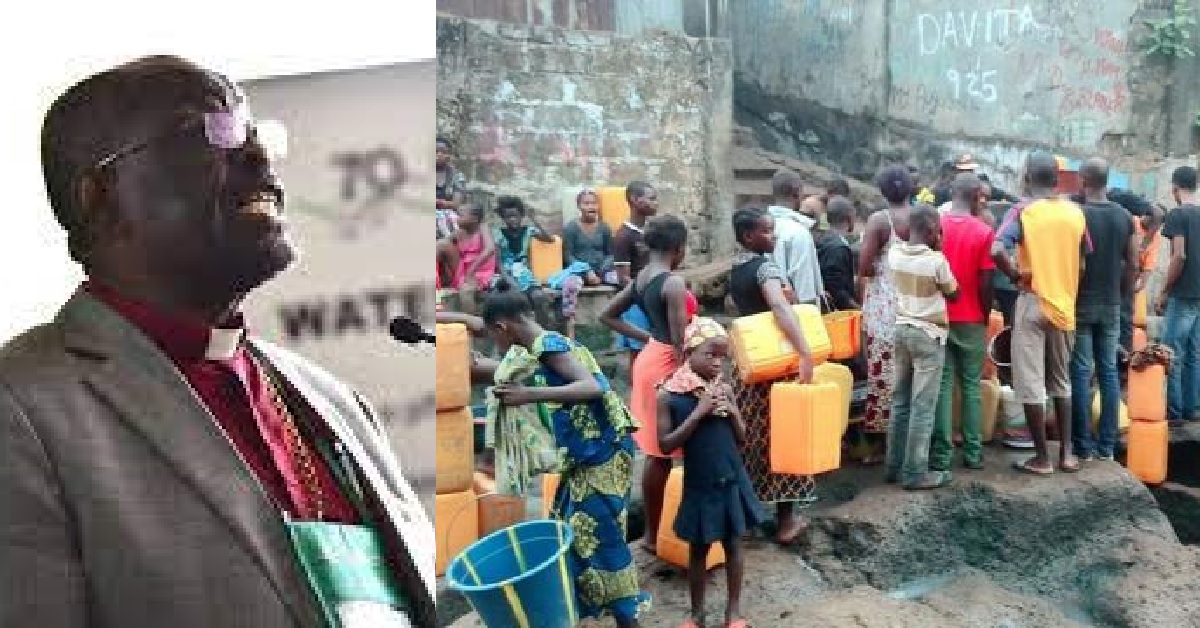The Chairman of the Ecumenical Water Network of the World Council of Churches, Bishop Arnold Temple has said that it is unacceptable that only 13% of Sierra Leoneans have access to water and sanitation. He however went on to recognize the various challenges and constraints of the companies that are entrusted with the supply of the commodity. Those challenges, he said have been there for far too long and the opinion is that no serious attempts have been made towards solution.
The Bishop was speaking at a one-day conference organized by the Council of Churches Sierra Leone CCSL on water and Justice population must be a priority and there is a need for decisive actions towards solutions of the problems. He lamented over the unsightly, unfortunate and unhygienic way and manner in which pipe borne water is obtained in Freetown. “It is very unfortunate and of great concern that pipe-borne water in Freetown, the capital of our nation, is obtained in the most unhygienic way – with pipes going through gutters and drainages and people having to put their containers in the filthy gutters to obtain water. It is degrading to say the least. Waterborne infections are parasites found in contaminated water are among the leading causes of death in Sierra Leone as people contact typhoid fever and hepatitis ‘A’. We need running water to homes and public stand pipes. People pay their water bills; yet fail to receive supply of water to their homes. This is unacceptable and tantamount to cheating,” the Bishop said.

He therefore called on water providers, the Guma Valley Water Company (SALWACO) to act and stop paying lip service to the supply of water.
In welcoming the participants, the General Secretary of the Council of Churches Sierra Leone, Mrs. Kezia Kargbo said that as a faith-based organization, CCSL has a moral imperative in advocating for the full realization of the human right to have access to clean water and for water justice, especially for the poor and other marginalized group. She said that water is a foundation for the life of human begins and other ecosystem members of the One Earth Community.
In his keynote address, representing the Minster of Water Resources Mr. Tucker said scarcity and misuse of fresh water pose a serious and growing threat to sustainable development and protection of the environment. He told participants that human health and welfare, food security, industrial development are all at risk, unless water and land resources are managed more effectively in the present decade and beyond than they had been in the past. “Pollution of water at either point or non-point sources cause a deterioration in the quality of water and makes water unstable and its treatment very costly. Human activities including poor land use practices, as well as pollution of water sources impact negatively on the quantity and quality of available water resources,” the Director said.
He went on to say that the Ministry of Water Resources with support from UNICEF is currently developing a water safety plan. He expressed profound gratitude and appreciation to the Council of Churches in Sierra Leone for organizing what he referred to as a momentous conference.











